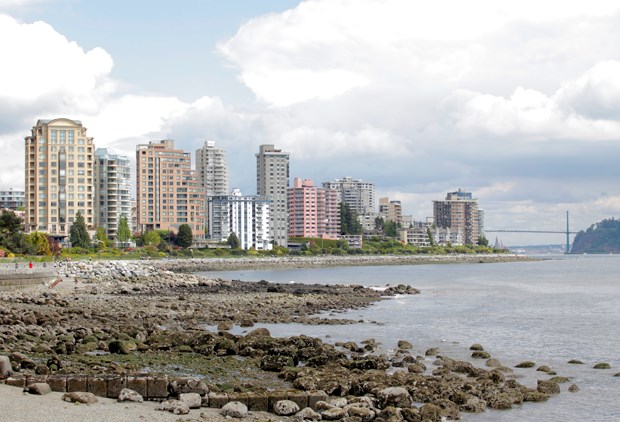Urban areas of the province – especially those with high property assessments like the North Shore – are paying an unfair share of school taxes, Metro leaders say.
North Shore mayors are among the Metro politicians calling for changes to the way provincial property taxes are collected, after a study by consultants showed households in the Lower Mainland pay three times as much school property tax as owners in other parts of B.C.
Fewer homeowners in the Lower Mainland are eligible to receive the provincial homeowners grant – which helps offset school taxes paid – than in rural areas.
The province has also collected a disproportionate share of property transfer taxes from property sales in Greater Vancouver – contributing about 75 per cent of the more than $2 billion total last year, according to the report by Cascadia Partners.
All that adds up to an unfair system in which urban property owners subsidize those in more rural areas, say the Metro mayors.
“West Vancouver is the worst treated,” said West Vancouver Mayor Michael Smith.
About 80 per cent of education spending in West Vancouver is funded by West Vancouver property taxes compared to roughly 46 per cent for the province as a whole. North Vancouver school taxes pay for about 70 per cent of school funding. That compares to many rural areas of the province where local taxes pay for under 25 per cent of educational spending, according to the Cascadia report.
“Some places pay less than 20 per cent of the budget,” said Smith. “What they need to do is come up with a formula that’s fair for everyone in the province.”
Local mayors say the fact that fewer homeowners in the Lower Mainland qualify for the provincial homeowners grant because of high property assessments makes the situation worse.
According to the report, only 20 per cent of homeowners in West Vancouver now qualify for the grant while 80 per cent don’t. In the District of North Vancouver, 62 per cent of homeowners qualify for the grant while 28 per cent don’t. In the City of North Vancouver 88 per cent of homeowners qualify.
The mayors say the way the grant is assessed should be changed so that roughly the same percentage of owners qualify throughout the province.
“Maybe (the threshold where the grant is cut off) should be higher in West Vancouver and lower in Langley,” said District of North Vancouver Mayor Richard Walton. “There’s a lot of people in West Vancouver who are home rich and cash poor. They’re not wealthy.”
That’s a sentiment Smith shares. While many affluent people do live in West Vancouver and the municipality has some of the highest assessed property in the country, it doesn’t mean everyone’s living the high life, he said. People living in rental apartments, for instance “pay these higher assessed taxes through their rent,” he said. “The level of taxation is making it difficult.”
In addition to fairer formulas for school tax and the homeowners grant, Metro mayors are asking the province to give back some of the windfall it has reaped through the property transfer tax to pay for urban needs like transit improvements and affordable housing.
“It’s very expensive to live in the Lower Mainland,” said City of North Vancouver Mayor Darrell Mussatto. “Metro Vancouver is paying way more than its share of taxes.”
“Times change,” he said. “We have to go back and reassess. Are they penalizing some areas and benefiting others?”



